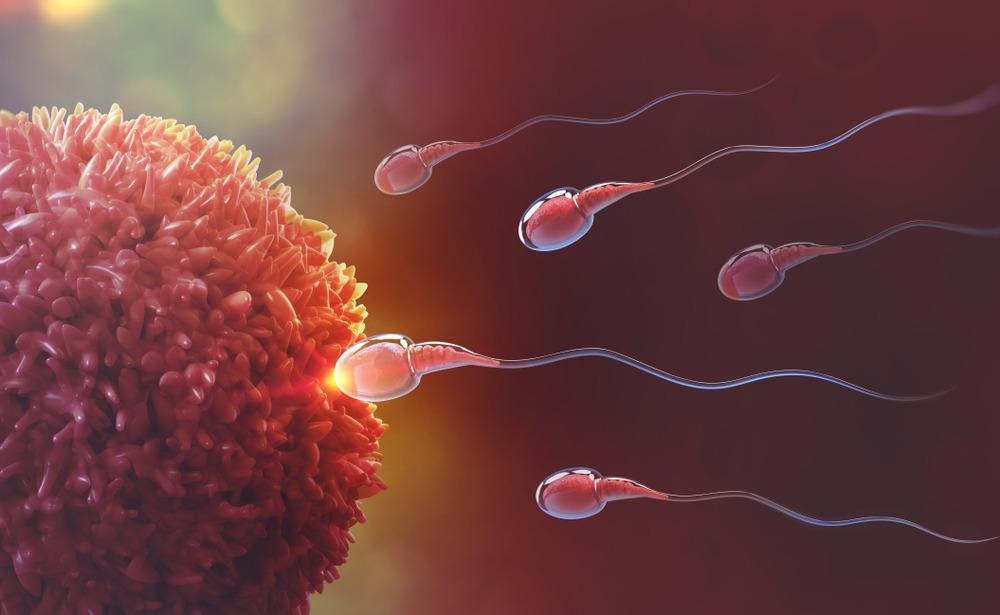Introduction
Preconceptional Health for Men
Infections
Lifestyle Changes
Men Supporting Women
Medications
Environmental Toxins
General Advice
Genetic Counseling
Conclusion
References
Pregnancy is among the most important life events in the life of a female. However, the role of the male partner is crucial. Several researchers have shown that preconception care for men helps improve pregnancy outcomes, is beneficial in terms of the reproductive and overall health of the female partner, and helps to prepare men for fatherhood. It is also a useful doorway to preventing disease and promoting health in males.

Image Credit: Rawpixel.com/Shutterstock.com
Preconceptional Health for Men
Pregnancy begins with conception, which requires fertilization to occur. Sperm health depends on the spermatozoa's number, motility, and morphology. Moreover, spontaneous mutations in the germline of the fetus are mostly derived from the father in response to environmental factors and age, including smoking and obesity.
A sperm count of 15 million per mL, or more, is considered to be necessary for optimal chances of conception. To achieve the best chances of successful conception, at least 40% of the sperm must be actively swimming. Moreover, the higher the number of normal-appearing sperm, the higher the chances of fertilization.
To optimize the probability of a successful pregnancy, men can take steps for preconception care, just as women do. Many doctors advise making a plan called a reproductive life plan to do this.
"Male preconception health care thus provides an opportunity to engage men around epidemiological factors, lifestyle, diet, exercise, and genetic predisposition to develop preconception strategies to improve male health, relationship integrity, and family dynamics."
Conversely, a failure to capture the man's attention in a pregnant or to-be-pregnant couple raises the risk of his disengagement from fathering, failure to care for his family, and unhealthy or dysfunctional family patterns perpetuating themselves through generations.
However, it is notoriously difficult to get men to change their health or lifestyle habits even when presented with evidence of health issues. Further research is essential to help understand the best ways to engage young men preconceptionally to achieve a positive outcome. Nonetheless, recent research indicates that preconceptional advice to men results in health-promoting changes, most commonly related to smoking, while drinking behavior remained the least affected.
Infections
The first thing to do might be to rule out sexually transmitted diseases (STDs), like gonorrhea or chlamydia, which can cause infertility or affect the pregnancy. Some STDs cause miscarriage; others can also cause fetal anomalies or stillbirth. The best way to avoid this is by a mutually faithful marriage between uninfected individuals. Others should stick to one partner and use a condom for each act of intercourse to prevent the transmission of infection.
Lifestyle Changes
Primary care interventions targeting male spouses or partners in a couple desiring conception or a pregnant couple could have lifelong benefits in terms of overall health.
Healthy lifestyle decisions come next to prevent oxidative stress and germline mutations. This includes maintaining a healthy weight since obesity and a low body mass index (BMI) is associated with low sperm counts. Paternal obesity also increases the risk of chronic disease in generations via epigenetic changes that persist for generations.
Stress is another deal-buster, and stress management should be a must in each man's life before conception is sought. Stress endangers mental health if too intense or too prolonged, which can affect the mother of the child during and after the conception period.
A healthy balanced diet with moderate physical activity is beneficial. The former will help boost antioxidant levels, which protect sperms from damage.
Things to avoid include smoking, heavy drinking, and exposure to excessive heat. Smoking and second-hand smoke can cause disease and premature death among both children and adults. Meanwhile, women exposed to second-hand smoke in pregnancy have a 20% higher chance of low-birth-weight babies compared to non-exposed women.
Smoking by the man can make it more difficult or even impossible for the woman to give it up during pregnancy. Maternal smoking is a risk factor for testicular cancer in the offspring. Heavy paternal smoking can also raise the chances of childhood cancer in the offspring by affecting the sperm DNA, but this is a slightly more distant effect.
"With the traditional emphasis on the impact of cigarette smoke on somatic tissues (for instance in heart disease and lung cancer), we tend to forget that smoking can also induce oxidative damage to the DNA in sperm, and thereby affect the health and wellbeing of the ensuing children. Moreover, because such damage is in the germ line, it can be transmitted to future generations."
Drinking could cause male infertility, as could street drug abuse. As necessary, men who drink or smoke should get help with quitting and rehabilitation.

Image Credit: Nopphon_1987/Shutterstock.com
Men Supporting Women
Men can boost the mental and physical health of their spouses or female partners, as well, by joining them in healthy eating and exercise habits or encouraging regular checkups with the doctor or midwife, irrespective of pre-existing medical conditions. Moreover, contraception should be discussed if the woman or the couple wants to avoid pregnancy for a time to improve their health, family, or financial stability, for instance.
Medications
All medications should be reviewed and changed if necessary, in consultation with the doctor. Almost one in three men are on some medication when conception occurs, counting only those medications that could potentially affect reproductive function or genetics. This includes antidepressants, antibiotics, antifungals, recreational drugs, and hair loss products. If chemotherapy or radiation therapy is to be commenced, the man could ask for sperm retrieval and storage prior to therapy for future assisted reproductive treatments.
Environmental Toxins
Environmental toxins, especially lead and pesticides, can cause damage to sperm production; therefore, protective gear is necessary to avoid skin contact with such chemicals or infective matter, including cat or rodent feces.
Dioxins, acrylamide, furans, insecticides like aldrin and dieldrin, and environmental estrogens have been cited as potential disruptors of male spermatogenesis via various mechanisms. While estrogenic exposure certainly happens on a much larger scale and at a much higher intensity (ten billion times higher) due to maternal estrogens or the ingestion of the birth control pill, male fetuses continue to develop normally.
Some scientists think oxidative stress is responsible for DNA damage to the sperm, caused by due to metabolites of these environmental compounds called quinones that cause DNA damage.
Workplace toxins can affect male workers and their families, such as lead, which can poison family members and cause neurologic damage and growth abnormalities in the fetus. Lead can be brought home on the skin, hair, clothes, shoes, toolbox, or car.
To minimize the chances of such harm, workers can follow environmental hazard guidelines as given here, including sealed storage of hazardous chemicals, handwashing before eating, drinking, or smoking, avoiding skin contact with chemicals, and if it happens, washing off as advised in material safety data sheets.
Training and safety practices, as well as changing out of work clothing at the workplace, keeping clothes worn to and from home in an unexposed part of the workplace, and arranging for the washing of the workplace clothes separately from other clothes, and if possible at the workplace itself, are all essential parts of avoiding harm to the family.

Image Credit: Yurchanka Siarhei/Shutterstock.com
General Advice
To keep the scrotal sac cool and thus facilitate normal spermatogenesis, it is generally advised that loose underwear be used, hot tubs and saunas avoided, and laptops or other heat-emitting objects be kept on tables and off the man's lap. Lubricants based on mineral oil may be spermicidal and should be avoided during intercourse if conception is planned.
Men, like women, are better off if they don't wait too long to have children because age affects male fertility, and when over 45 years, it increases the age of miscarriage as well as mental and developmental disorders.
Screening for domestic violence and counseling on family relationships is essential to ensure the pregnancy results from a consensual and respectful relationship.
Genetic Counseling
This is an excellent time to learn family history. Men should get to know if they have a familial chance of specific diseases or carry certain traits that could make genetic counseling beneficial in some cases. Also, genetic counseling could be helpful if several earlier pregnancies with the same spouse have ended in miscarriage or stillbirth, or early infant deaths, or if there is a history of an earlier pregnancy with a fetal anomaly or genetic condition.
Conclusion
It is important to look at a pregnancy holistically to improve the health of both male and female parents. Incorporating male preconceptional healthcare into primary care could help improve male sexual health, fathering quality, family life, and better relationships and benefit future generations profoundly.
General recommendations include having a reproductive plan drawn out after discussing reproductive health with the man and reviewing such issues at each visit. Besides the physical examination, medications, lifestyle activities, and illnesses that may affect fertility may be discussed if conception is desired. Family, genetic and social factors should be brought into the conversation to cover paternal sources of risk to the pregnancy via direct or indirect means.
References:
Further Reading
Last Updated: May 18, 2023